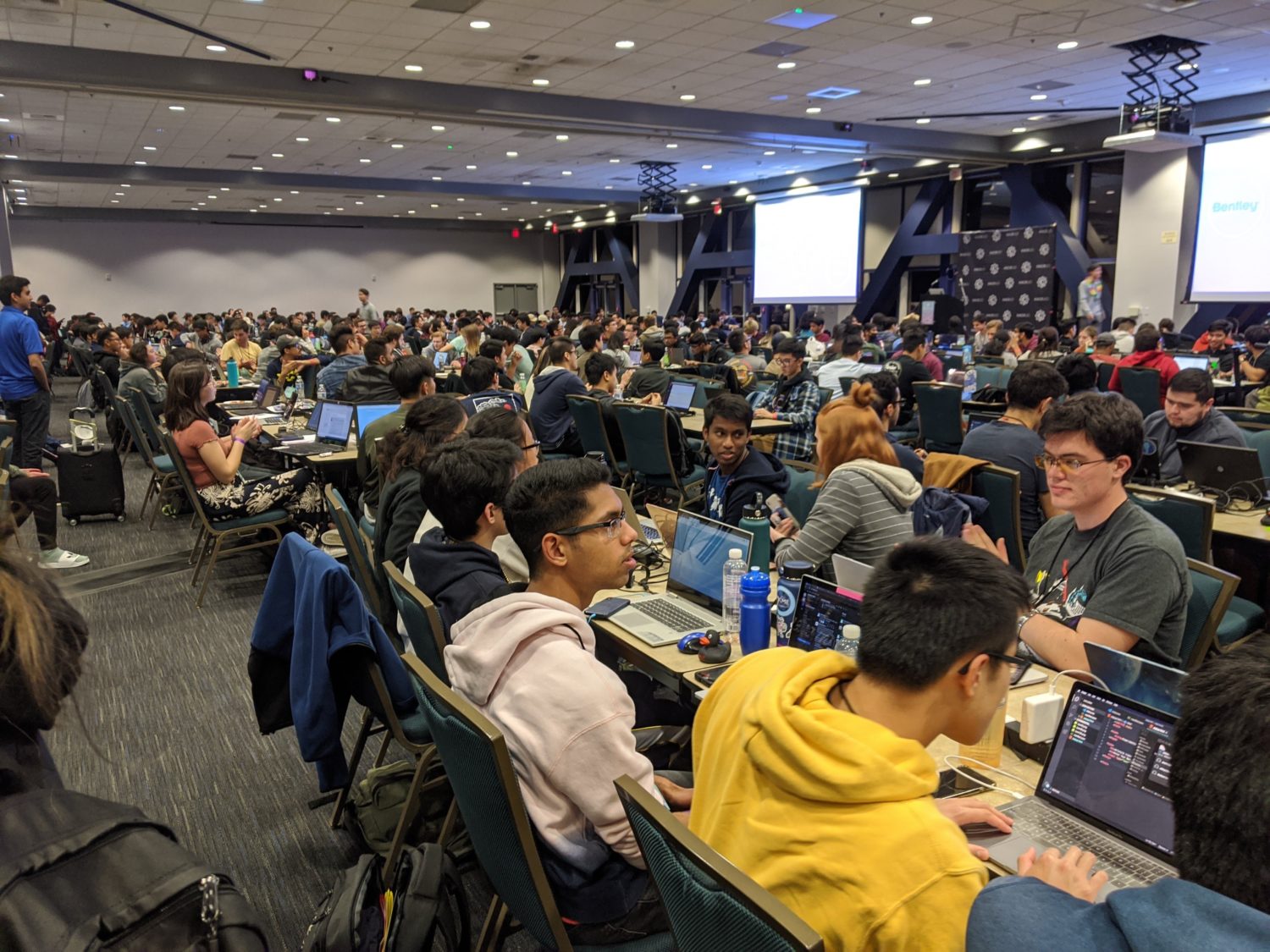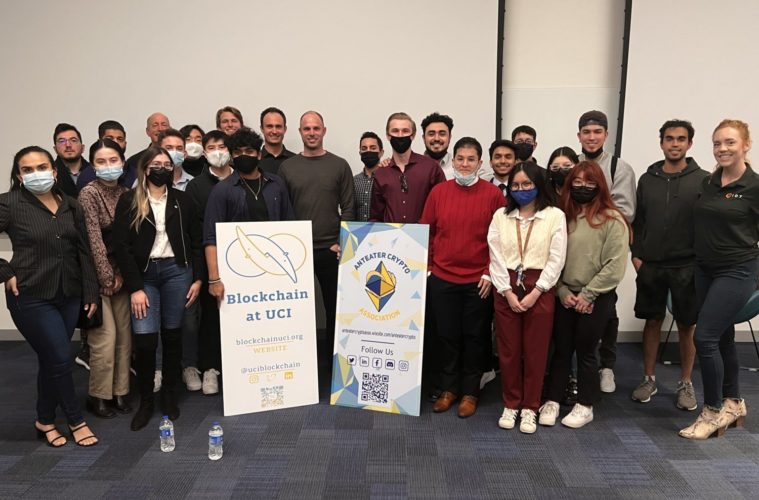While the average Irvine resident might not understand the concept of a blockchain, or even know how the technology relates to the world’s cryptocurrency transactions, a group of UC Irvine students are helping educate others on the utility blockchain technology can provide to businesses within mainstream industries.
Blockchain UCI, a UC Irvine-based student club, provides education on the basics of blockchain technology, building on the real-world applications outside of its most recognizable function as a web-based decentralized financial system.
Recently, the club hosted an event with guest speaker Jason Les, CEO of Riot Blockchain Inc., a publicly-traded Bitcoin mining company currently valued at $1.6 billion.
Anish Lathker, president of Blockchain UCI, spoke to Irvine Weekly, to explain what Blockchain UCI hopes to accomplish through this education.
“We’re an ecosystem for blockchain education, developing a network for UCI, and the surrounding regions. Our mission is to spread awareness about the technology, and provide consulting services to companies in the area,” Lathker said. “The basis of pretty much everything we know today is built upon centralized things, and sure that might be great and all in the short term, but what happens when things get too centralized?”
With approximately 130 members, Blockchain UCI is a mixture of students with a well-rounded understanding of blockchain and Web3 – the decentralized portion of the internet – which are known as technical members.
“These are the people who will take on the projects for companies, nonprofits and other club-related projects,” Lathker explained. “Our general members are individuals who may have heard about blockchain, NFTs and crypto – some of them just want to be educated on the topic.”
For context, blockchain technology acts like a public digital archive where there is no ruling authority. It exists via a global network of peer-to-peer computers that verify and finalize every transaction made on the chain. The core functionality of blockchain is a public log of every single transaction that occurs on the chain. Each transaction recorded is final, and once completed, these entries cannot be altered. Essentially, each transaction becomes another link in the chain, and the chain’s length is infinite.
Cryptocurrency isn’t anything new for Lathker, who first interacted with Bitcoin on the Minecraft server, as a sixth-grader. By his freshman year in high school, he was trading cryptocurrencies online.
The trend remains the same, as the nuanced technology can seem too technical for the older generation, but full of opportunities for younger participants. With so much attention on NFTs, and the now recognizable value of cryptocurrency, Lathker explained why blockchain and Web3 technology seems to be so captivating to the younger generation.
“I think the reason a lot of young kids, young adults are getting into this space is specifically because decentralization allows everyone to have a voice in the decision-making process, and not one entity has control over anything, so it can’t be manipulated – you know that everything that happens is legitimate,” he said.
In his first year as president of Blockchain UCI, Lathker, a junior majoring in business information management and computer science at UC Irvine, already has professional experience implementing blockchain functionality.
“The space has a lot of tech implications, similar to A.I. There are a lot of other use cases. I’ve seen blockchain used in the healthcare industry, the legal industry – I did a consulting gig for a construction company,” Lathker said.

A pre-pandemic hackathon event hosted by Blockchain UCI.
While the blockchain may seem like a technological achievement to locate, it can be accessed by anyone with an internet connection and has led to an exponential growth in the use of different cryptocurrencies across the globe.
Thanks to this unhackable nature, the blockchain has provided millions with a trusted method of decentralized banking that continues to gain popularity daily. However, the nearly impenetrable aspect of blockchain is an intriguing perspective when it comes to secure online storage.
“Technically, a blockchain is a trustless accounting system. Files can be stored on the blockchain, for example. Those files can’t be changed, manipulated or edited. If they are, the previous versions of history are easily accessible; they are there for everyone to see,” Lathker explained. “One of my favorite use case scenarios of blockchain – a lot of Americans want to know where their tax dollars are going. We don’t have an itemized transaction history. Now, if every single one of these transactions were done through smart contracts via the blockchain – you can kind of hold accountability for government systems through the blockchain.”
Lathker admits he is not a blockchain expert, but he speaks from his professional experiences. From his perspective, it may take time for businesses to put their faith into the “trustless system” that is the blockchain, but he sees plenty of opportunity for the technology to present itself as a valuable resource in day-to-day business operations.
“Aside from all the profile picture NFTs – using NFTs to sell tickets ensures some really cool things. One, it’s legitimate – there’s no way to falsify this information because it’s stored on the blockchain. Contrary to what a lot of people believe, ‘oh, it’s just an image’ – well, it’s not, because there’s an actual token associated with it,” he said. “Right now, I think we’re seeing a huge trajectory with NFTs to kind of validate certain things in the fully trustless environment.”
Advertising disclosure: We may receive compensation for some of the links in our stories. Thank you for supporting Irvine Weekly and our advertisers.

